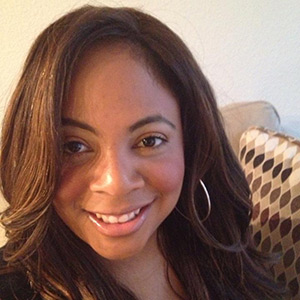 Crystal Browning describes her standing in the regulatory affairs profession as “pretty green” when she was accepted into the Master of Science in Regulatory Affairs program at SDSU’s College of Sciences. With a Bachelor of Science degree in cell and molecular development (with an emphasis in biological sciences) from the University of California Riverside, Browning started in the regulatory affairs industry in 2002 and was accepted into SDSU’s Master of Science program in 2005.
Crystal Browning describes her standing in the regulatory affairs profession as “pretty green” when she was accepted into the Master of Science in Regulatory Affairs program at SDSU’s College of Sciences. With a Bachelor of Science degree in cell and molecular development (with an emphasis in biological sciences) from the University of California Riverside, Browning started in the regulatory affairs industry in 2002 and was accepted into SDSU’s Master of Science program in 2005.
“My purpose in taking the program was to not only fine-tune my skills but to experience regulatory situations I hadn’t yet experienced,” she said. “Since my graduation from the program, I was a global regulatory lead-director, managing regulatory submissions in the US, EU, Latin America, and Asia; and now I’m senior director of regulatory affairs for a bioscience company.”
Offered in partnership with SDSU’s College of Extended Studies, the online program provides critical ongoing training and education to those involved with the development, testing, manufacturing, and commercial distribution of pharmaceutical, biologic, veterinary, and medical device products.
“This program gave me the confidence to know that I have the necessary background to navigate my organization through the ever-changing regulatory environment,” said Browning.
How did you find out about SDSU’s Regulatory Affairs program?
I did my own research online. I had to find a program that was competitive from a learning perspective and very cost-efficient.
How long did the program take?
It took me five years. The course work took three years and the thesis completion took two years.
What was your thesis project?
It was titled: “Pediatric Clinical Trials and Differences between the U.S. and EU Regulatory Process and How Companies Can Start Pediatric Development Early.” My thesis focused on the EU and U.S. regulations surrounding pediatric clinical data, and provided viable solutions to companies for incorporation of pediatric clinical trials early in the development of a product.
How did you feel about the caliber of instructors and their accessibility?
I found the instructors provided very clear directions and valuable relatable experience.
Can you speak to the networking aspects of the program?
One of the greatest aspects is that you’re working with regulatory professionals that you can call for advice about regulatory situations you’re facing in your current role. Based on my experience at SDSU, I’ve had the opportunity to serve as a mentor to various regulatory professionals in regard to the next step in their careers.
How did your Master of Science degree impact your career?
It made me a more confident regulatory professional. Sometimes we’re faced with situations we’ve never experienced before, so it’s important to provide correct guidance to our company. This program taught me how to successfully navigate my organization through situations where there is not a clear black or white answer.
After my graduation from the program, I became a global regulatory lead-director, managing regulatory submissions in the US, EU, Latin America, and Asia. Currently I’m senior director of regulatory affairs for a bioscience company.




